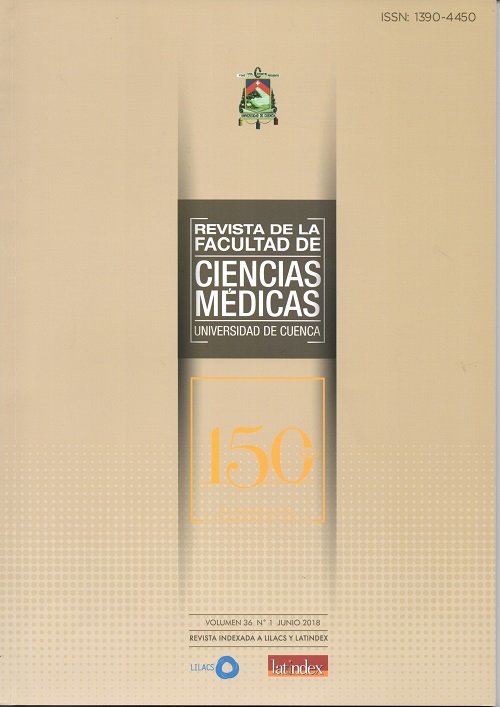Síndrome de Lynch: Caracterización genético clínica y epidemiología. Caso clínico.
Resumen
ResumenEl cáncer colorrectal hereditario no polipósico (CCHNP), también llamado síndrome de Lynch, es la forma más común de cáncer colorrectal (CCR) hereditario (1). Se trata de un síndrome con gran carga genética y penetrancia, que se presenta en etapas tempranas de la vida, en diversos miembros de la familia (2). Es una enfermedad autosómica dominante debido a la presencia de mutaciones en los genes reparadores de bases desapareadas de ADN, principalmente MSH2 y MLH1, que representan un 90% del total, y con menor frecuencia, MSH6 y PMS2(3). El 80% de los cánceres colorrectales son de aparición esporádica, el 10% son familiares y el restante 5-10%, tienen carácter hereditario. Se presenta el caso de un hombre de 35 años, con múltiples recurrencias y al menos dos generaciones afectados. Se discuten los aspectos más importantes sobre el diagnostico, manejo y consejo genético en estos casos.
Palabras Clave: Neoplasias Colorrectales Hereditarias sin Poliposis, antecedentes genéticos.
Descargas
Publicado
Número
Sección
Licencia
Copyright © Autors

Usted es libre de:
 |
Compartir — compartir y redistribuir el material publicado en cualquier medio o formato. |
 |
Adaptar — combinar, transformar y construir sobre el material para cualquier propósito, incluso comercialmente. |
Bajo las siguientes condiciones:
 |
Atribución — Debe otorgar el crédito correspondiente, proporcionar un enlace a la licencia e indicar si se realizaron cambios. Puede hacerlo de cualquier manera razonable, pero de ninguna manera que sugiera que el licenciador lo respalda a usted o a su uso. |
| No comercial — No puede utilizar el material con fines comerciales. | |
| Compartir Igual— si remezcla, transforma o desarrolla el material, debe distribuir sus contribuciones bajo la misma licencia que el original. |
| Sin restricciones adicionales: no puede aplicar términos legales o medidas tecnológicas que restrinjan legalmente a otros a hacer cualquier cosa que permita la licencia. |






